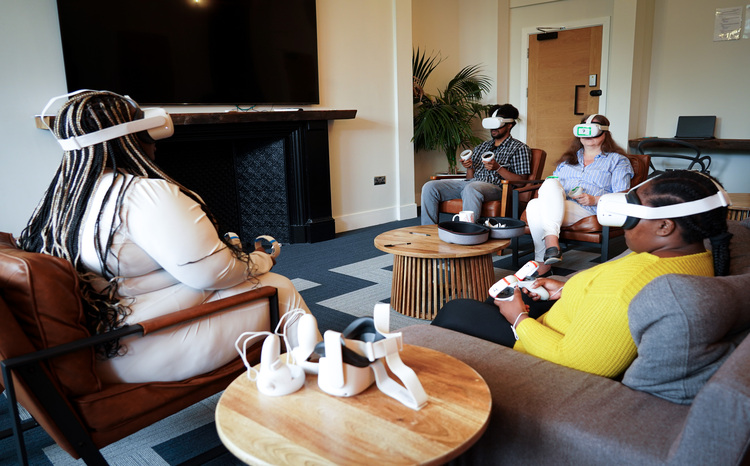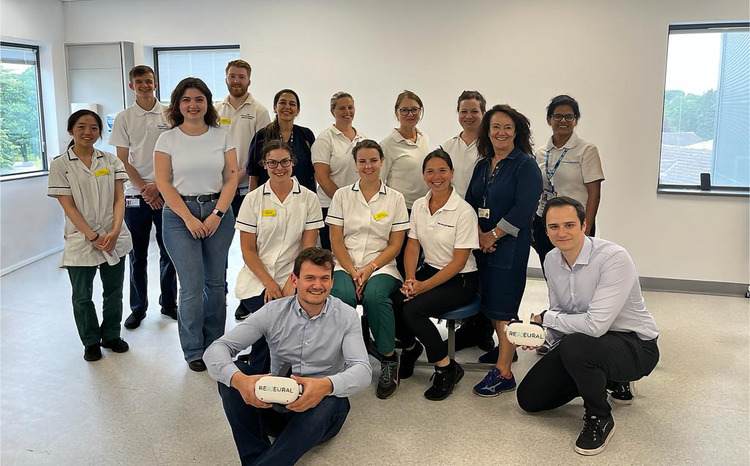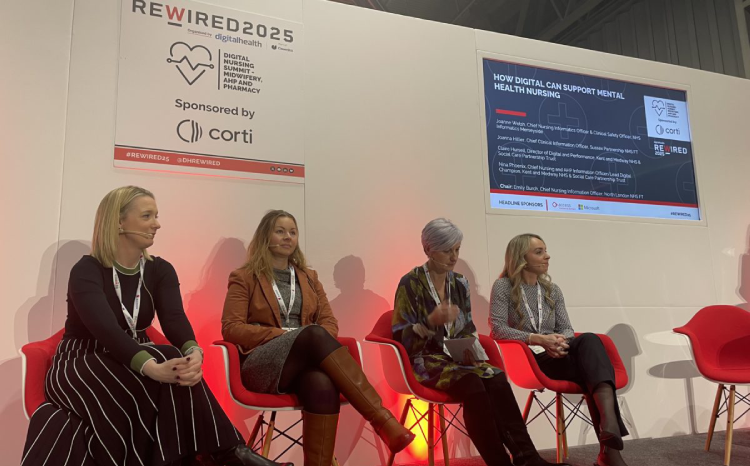VR project aims to improve mental health for homeless
- 6 September 2024

- Residents at Apax assisted living and supported housing service can access a meditation app through VR headsets
- An eight-week proof of concept trial started in November 2023
- Apax said the initiative has helped residents to improve their mental health and develop digital skills
A virtual reality (VR) initiative has been launched with the aim of helping homeless people in London to improve their mental health and prepare for independent living.
More than 140 residents at Apax assisted living and supported housing service in the London Borough of Lewisham, are able to access the TRIPP meditation app on 10 Meta Quest 2 VR headsets, which were donated by Meta.
The VR technology was adopted at Apax following an eight-week proof of concept trial which took place between November 2023 and January 2024.
According to figures from homelessness charity Crisis, 45% of people experiencing homelessness and 80% of rough sleepers have been diagnosed with a mental health issue.
Apax reported that using the VR solution has helped its residents to reduce stress, manage moods, and develop digital skills which could help with independent living.
Israa Qaddourah, project manager at Apax, said: “The vast majority of our residents have the potential to live independently one day.
“Our job is to provide the services that ensure they can confidently complete that journey.
“Our new VR wellness programme has delivered incredible results that have improved mental health and provided the confidence that people need for a more fulfilling life.”
Commenting on the project, Era Sahni, director of B2B channel partnerships Reality Labs at Meta, said that Apax “provides valuable assistance to individuals in genuine need”, adding “we’re happy that Meta Quest is helping vulnerable people find their way back into society”.
Apax partnered with Insight Enterprises to work out how best to use the hardware, identify the most suitable wellness applications and ensure the smooth roll-out of the technology.
Insight facilitated the supply of headsets, software licensing with Tripp and the required integration for the organisation.
Davi de Andrade, services development executive at Insight UK, said: “We had an opportunity to make a real difference to people’s lives.
“Our experience in spatial computing, coupled with our longstanding work with independent software vendors, meant we could provide an innovative solution to Apax and their clients.”
Plans are underway to explore deployment of VR within Apax for staff training and to enhance clients’ life skills and digital dexterity.
A 2022 study led by researchers at the University of Oxford and Oxford Health NHS Foundation Trust found that VR can successfully help people recover from mental health problems.
A VR research project at St George’s University of London, which took place between October and November 2023, found that the technology helped reduce stress and increase feelings of calm for students.
VR has been used for healthcare in diverse ways, including to provide nurses with an overview of working in a prison, support women with pregnancy loss, educate clinicians about dementia, develop shared decision-making skills for healthcare professionals, aid rehabilitation for patients recovering from strokes, and prepare surgeons to undertake heart surgery.
Meanwhile, in November 2023, VR technology was approved by the National Institute for Health and Care Excellence for treating agoraphobia.





